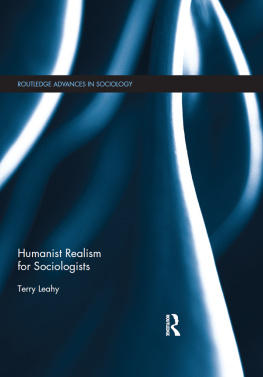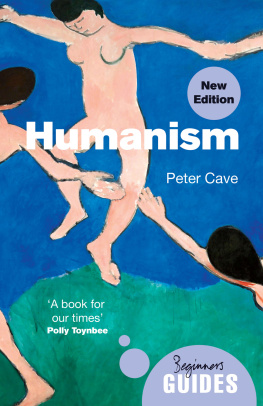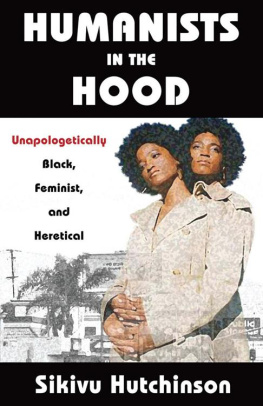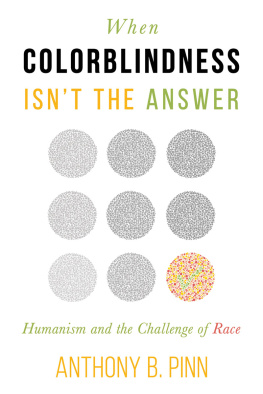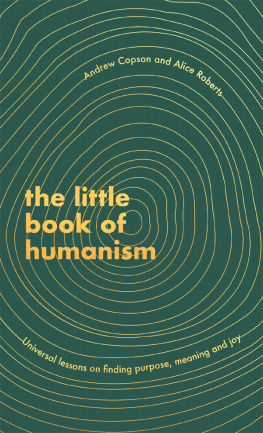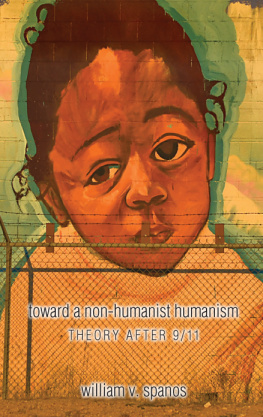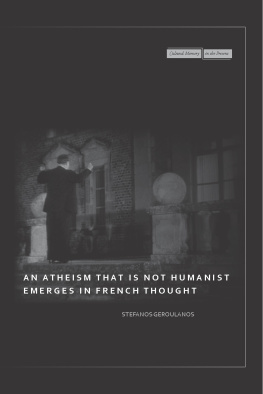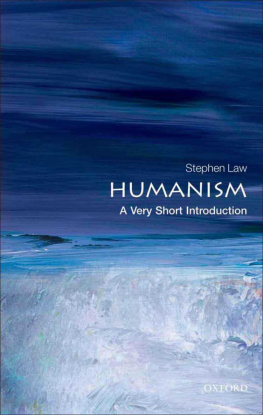
Humanist Realism for Sociologists
Recent critiques treat humanism as a mistaken value framework. In fact, the concept of human nature is essential for sociology, but is often denied at the same time as it silently underpins the text.
While classic authors can show us how to connect an ethics with a concept of human nature, current humanists must tackle the sociobiological view of human nature and interrogate humanism in the light of the ecological crisis. Humanist Realism for Sociologists both explains and explores some of the main arguments surrounding humanism put forward by classic social theorists such as Aristotle, Marx and Weber, as well as more contemporary authors such as Braidotti, Oakley, Weedon, Firestone, Connell, Flyvjberg, Foucault and Bourdieu.
A must-have tool for understanding how value perspectives cannot be eliminated from the social sciences, this book is essential for undergraduates, postgraduates and postdoctoral researchers interested in the fields of sociology, anthropology, womens studies, social work, human geography, political philosophy and ecology.
Terry Leahy is a sociologist from the University of Newcastle, Australia.
Routledge Advances in Sociology
For a full list of titles in this series, please visit www.routledge.com/series/SE0511
How To Do Politics With Art
Edited by Violaine Roussel and Anurima Banerji
Urban Music and Entrepreneurship
Beats, Rhymes and Young Peoples Enterprise
Joy White
Multigenerational Family Living
Evidence and policy implications from Australia
Edited by Edgar Liu and Hazel Easthope
Sociology of Crisis
Myrto Tsilimpounidi
Praxeological Political Analysis
Edited by Michael Jonas and Beate Littig
Austere Histories in European Societies
Social Exclusion and the Contest of Colonial Memories
Edited by Stefan Jonsson and Julia Willn
Habermas and Social
Research
Between Theory and Method
Edited by Mark Murphy
Interpersonal Violence
Differences and Connections
Edited by Marita Husso et al.
Online Hate and Harmful Content
Cross National Perspectives
Pekka Rsnen, Atte Oksanen, Matti Nsi and Teo Keipi
Science, Technology and the Ageing Society
Tiago Moreira
Values and Identities in Europe
Evidence from the European Social Survey
Edited by Michael J. Breen
Humanist Realism for Sociologists
Terry Leahy
Humanist Realism for
Sociologists
Terry Leahy

First published 2017
by Routledge
2 Park Square, Milton Park, Abingdon, Oxon OX14 4RN
and by Routledge
711 Third Avenue, New York, NY 10017
Routledge is an imprint of the Taylor & Francis Group, an informa business
2017 Terry Leahy
The right of Terry Leahy to be identified as author of this work has been asserted by him in accordance with sections 77 and 78 of the Copyright, Designs and Patents Act 1988.
All rights reserved. No part of this book may be reprinted or reproduced or utilized in any form or by any electronic, mechanical, or other means, now known or hereafter invented, including photocopying and recording, or in any information storage or retrieval system, without permission in writing from the publishers.
Trademark notice: Product or corporate names may be trademarks or registered trademarks, and are used only for identification and explanation without intent to infringe.
British Library Cataloguing in Publication Data
A catalogue record for this book is available from the British Library
Library of Congress Cataloging in Publication Data
A catalog record for this book has been requested
ISBN: 978-1-138-64496-0 (hbk)
ISBN: 978-1-315-62843-1 (ebk)
Typeset in Times New Roman
by Wearset Ltd, Boldon, Tyne and Wear
Contents
I was surprised to find myself writing a book about meta-theory and feel I should explain why I am returning to this topic after so many years. The occasion is definitely my reading of Bent Flyvbjergs Making Social Science Matter (2001), itself a book on meta-theory. I read it like a novel, every night before going to bed, and never found it boring. Despite this, I kept being annoyed by aspects of the book. I started to write notes in pencil in the margin, even though it was someone elses book. Flyvbjerg defends much of the meta-theory that is mainstream in the social sciences today. While I have some similar concerns, my own perspective is quite radically different.
Flyvbjerg is right that the social sciences always come in for a battering from the right wing in the culture wars and his book is intended to rescue us. People like me who teach in universities must be aware that the pure discipline of sociology is hardly the flavour of the month with students, who think it cannot help them get a job. The radical students who used to populate Sociology departments are more likely to do Communications or Environmental Sciences or Development Studies. The Communications students are hoping to get exciting and creative jobs in the last days of affluence and the other radical students are hoping to do something about the disasters that plague us with something a lot more practical than sociology.
This may be a career problem for sociology academics but whether it is really a problem for social science is hard to say. After all, geographers and cultural studies academics, as well as anthropologists, all use the theoretical resources that sociologists use Foucault, the neo-Marxists, feminism and so on. Qualitative social research and surveys are used in social work, nursing and even architecture and town planning. It is almost embarrassing the way some of these people look to us as the parent discipline. You can feel like the emperor has no clothes.
Sometimes sociologists express their current disquiet like this sociology is facing a crisis; we need a new paradigm. Obviously there are a few contenders for this status, yet there is no general agreement. On the other hand, social research goes on and journals and books go ahead with fascinating research on every aspect of society. Is there really a problem?
It may be more accurate to say that the Left is facing a crisis. I would put it this way. Social scientists, along with the Left in general, see many failings in capitalism, patriarchy and racism, and we are getting on with trying to change things. Yet we do not really agree on any overall direction. If capitalism, patriarchy and racism are all damaging, what do we want in their place and how are we going to move in that direction? One solution is to say that the idea that there could be a unifying grand narrative of the Left is itself problematic.
Yet I doubt whether abandoning grand narratives is the answer. Quite a few of us on the Left are not really convinced. The postmodernist solution has not resolved the problems of disunity. Worse, the abandonment of grand narratives and grand alternatives is disingenuous. Our critiques of society today all come from somewhere and necessarily point to some alternative. While it may be less scary to define such an alternative in the negative as not this, not that we could also round up all these negations and see what they add up to.

